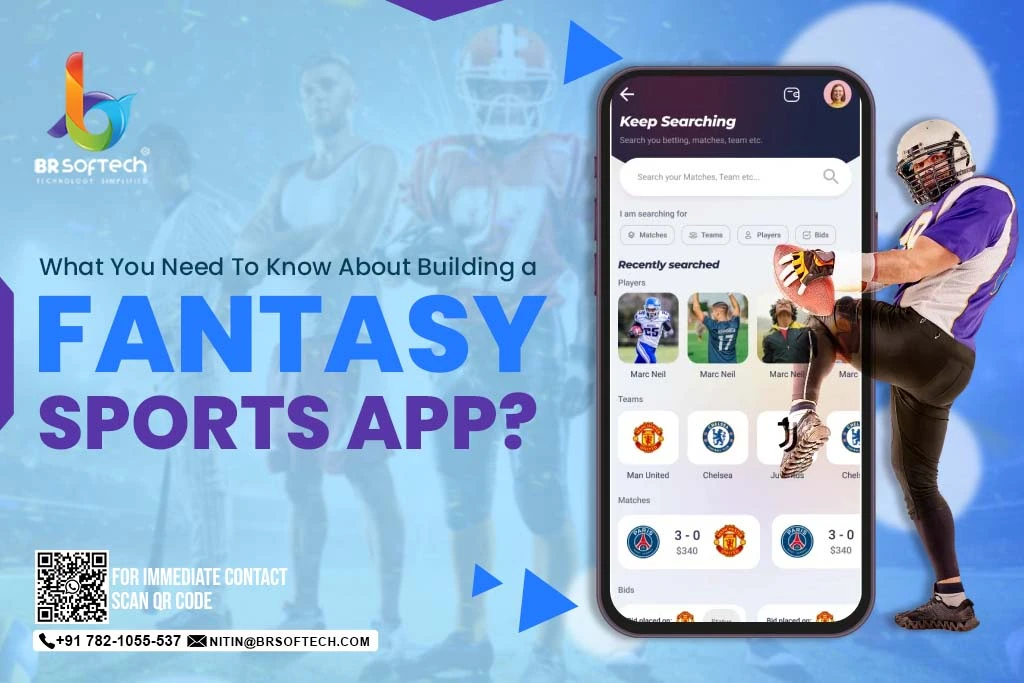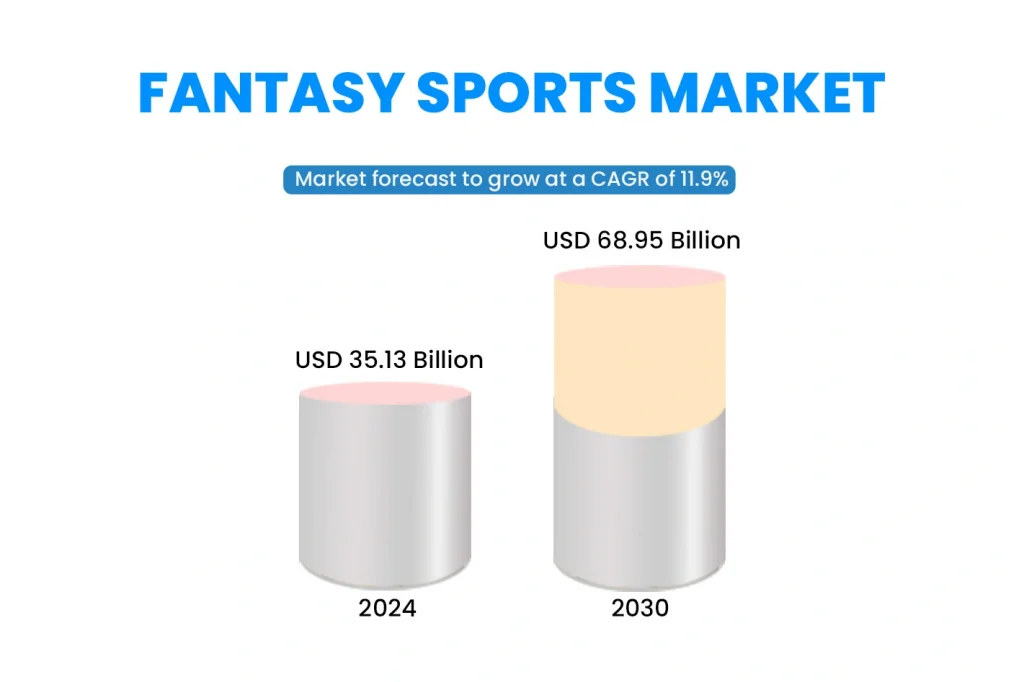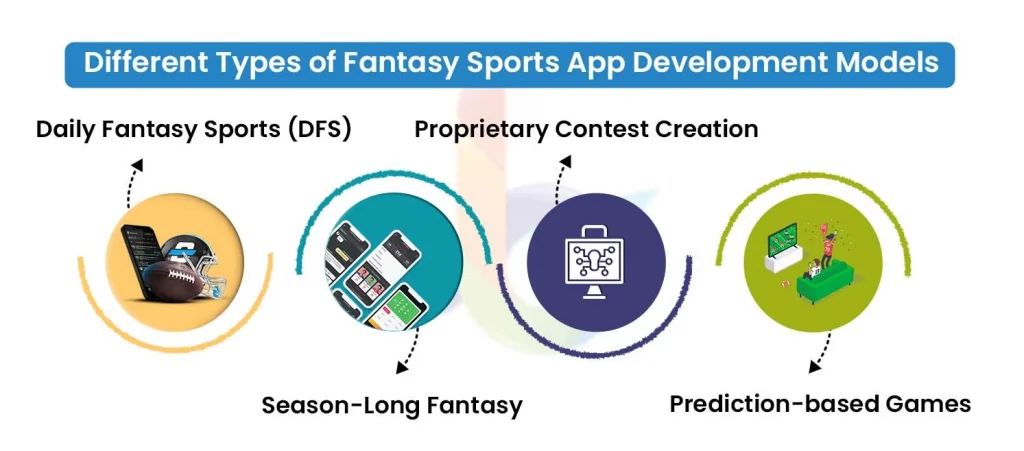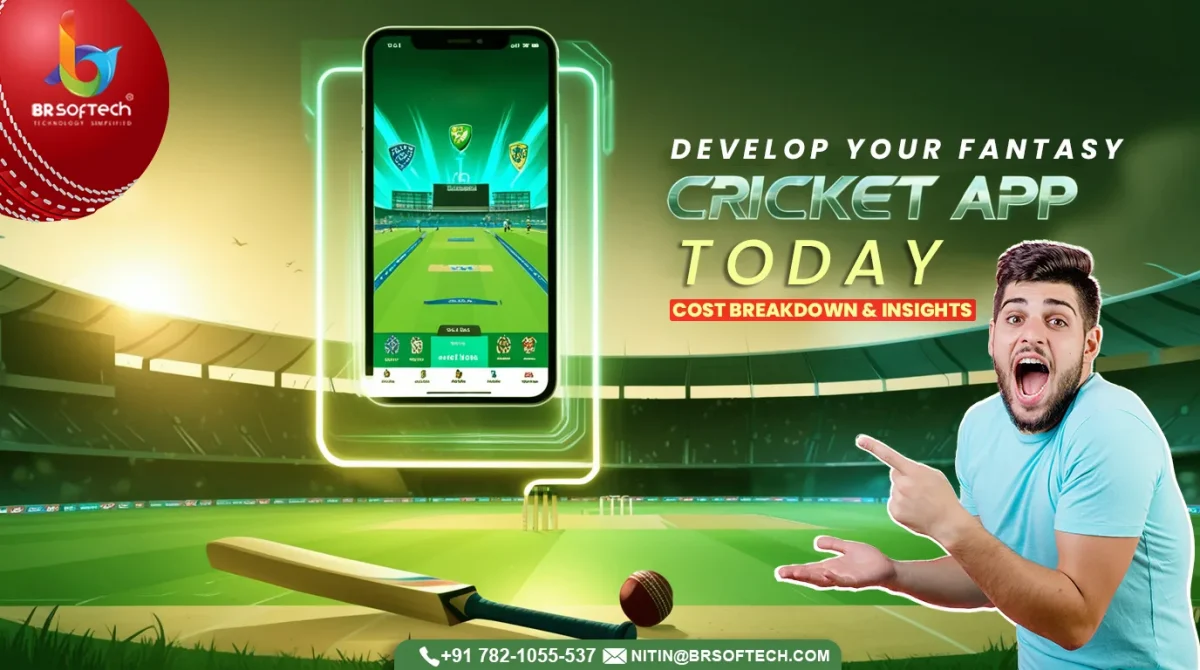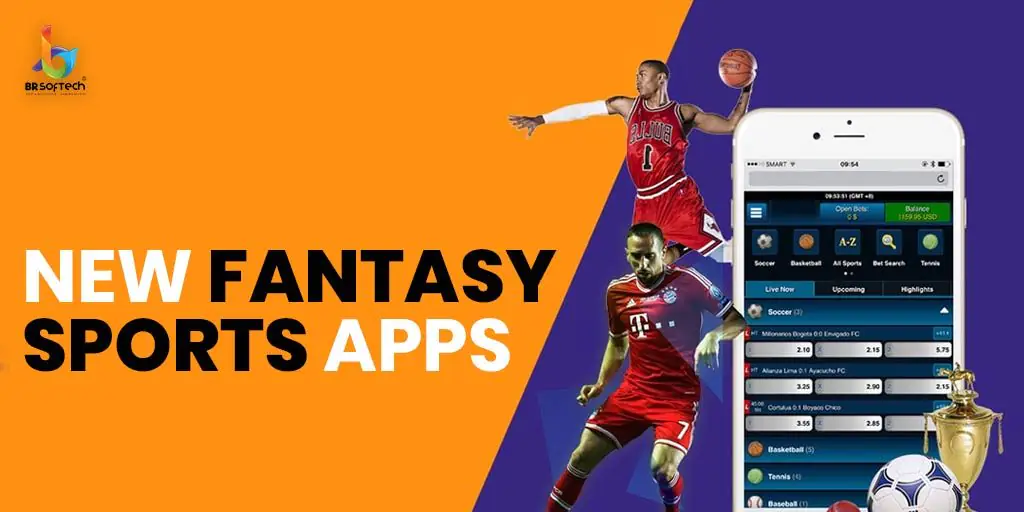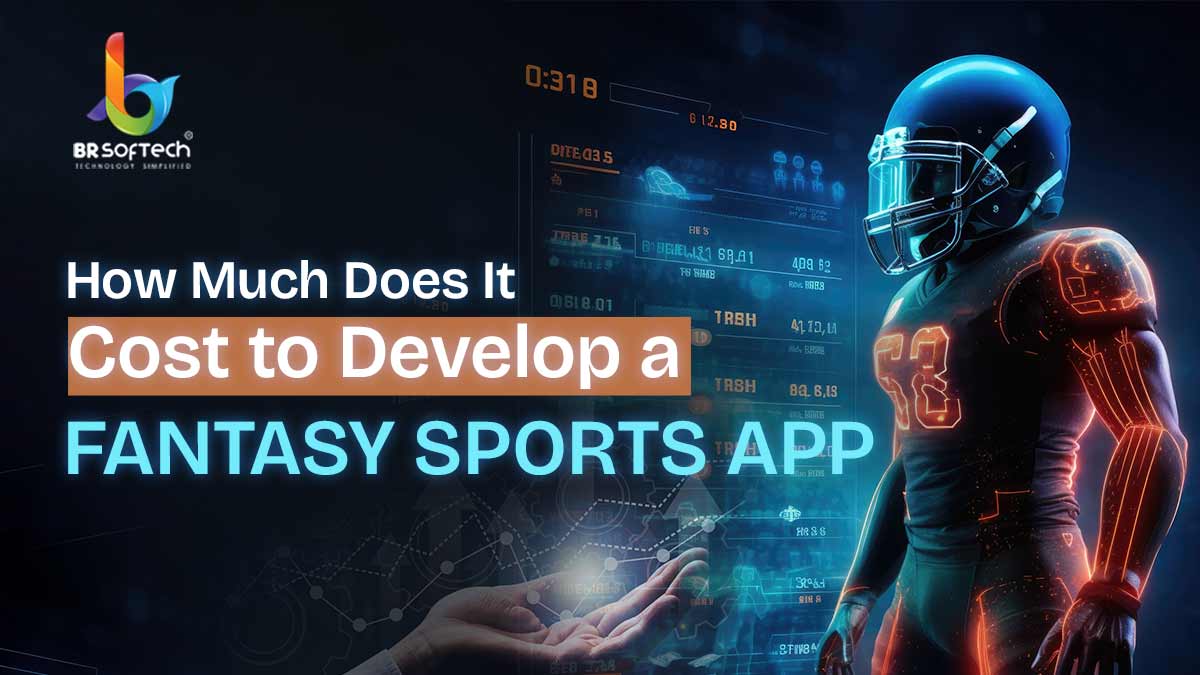The fantasy sports industry over the years has grown exponentially attracting millions of fans across the globe. These fans eagerly participate in fantasy leagues. It can’t be denied the impact that these apps on sports culture have worldwide. If you are into building a fantasy sports app, then it is essential to understand crucial elements and the development process that can positively impact your business’s success.
Here in this article, you will cover everything that you need to know about building a fantasy sports app, from core features and monetization strategies to development steps and legal strategies and other information that you won’t find anywhere else. Let’s start by understanding about fantasy sports app.
Understanding Fantasy Sports Apps
Fantasy sports apps are online software allowing users to create virtual teams based on real-life players from various sports. Users earn points based on the actual performance of players in real games with an aim to outperform other users. These apps cover popular sports including cricket, football, basketball, and baseball, though many apps expand to other niches as well.
Benefits of Creating a Fantasy Sports App
Here are some important benefits that make great sense to build a fantasy sports app:
- Expanding User Base: In terms of popularity, fantasy sports apps are growing worldwide. According to research, the fantasy sports industry grew from USD 31.45 billion in 2023 to USD 35.13 billion in 2024. Therefore, it is expected to rise at a CAGR of 11.86%, reaching USD 68.95 billion by 2030.
- User Engagement: Fans love to engage deeply with their favorite sports. A well-designed fantasy sports app keeps them retained if they have opportunities to win rewards.
- Revenue Potential: Fantasy sports apps have the potential to generate revenue from different monetization models including but not limited to in-app purchases, subscriptions, and advertisements.
Necessary Features of a Fantasy Sports App
A successful fantasy sports app requires incorporating core features to attract and keep users engaged.
1. Customized User Profile
A personalized user profile can let users track their performance, manage personal data, and see game history and stats. Moreover, they can link their social media accounts to share their game performance on social media networks.
2. Real-Time Data and Stats
For a fantasy sports app, real-time player statistics and live match data are crucial. It enables users to make informed decisions providing an edge in the game. You must consider partnering with a reliable data provider to ensure your app gets accurate and real-time sports information.
3. Team Creation and Player Drafting
This feature allows users to draft players to form their teams. Some apps implement a salary cap, while other apps give complete freedom. For those who don’t know what a salary cap is, it is a limit on the total money a player can spend in assembling a team. Including multiple game formats in the app like daily fantasy sports, season-long formats, and league drafts can enhance user experience and attract diverse users.
4. Live-Scoring
Giving users access to live scoring keeps them updated in real-time on the player’s performance. This feature is essential for keeping users engaged during games.
5. Payment Gateway Integration
Many fantasy sports apps offer cash prizes. Therefore, it is crucial to integrate secure and reliable payment gateways for handling transactions such as deposits, winnings, and withdrawals. Payments through credit/debit cards, e-wallets, and UPI, to make transactions convenient for users.
6. Push Notifications
Push notification notifies users about important updates like game schedules, scores, or any contests they may be interested in. This feature can significantly improve user engagement with the app.
7. Centralized Dashboard For Admins
A centralized admin panel allows the admin to manage the platform and monitor it effectively. Using this dashboard, admins can control various aspects, including user engagement, prize distribution, game scheduling, and content updates.
Different Types of Fantasy Sports App Development Models
Before learning about the development process, decide on a suitable model that suits the best for your business goals:
1. Daily Fantasy Sports (DFS)
In Daily Fantasy Sports, users draft teams for a single day or a week instead of a season-long commitment. It’s popular due to the quick pace and immediate rewards it offers to users.
2. Season-Long Fantasy
This model involves users forming teams for an entire sports season. It requires more commitment and attracts highly loyal users.
3. Proprietary Contest Creation
Some apps allow users to create custom contests with unique rules, enhancing engagement and focusing on a more personalized experience.
4. Prediction-based Games
In fantasy sports games where prediction is required, users are allowed to guess outcomes like match winners or top performers. It’s less complex than fantasy sports but engages equally and is popular in regions where gambling is restricted.
Technology Stack for Building a Fantasy Sports App
The right tech stack is essential in creating a stable, responsive, and scalable app. Here are some popular tools used for different application parts.
- Frontend: Swift (iOS) and Java/Kotlin (Android), React Native, Flutter
- Backend: Node.js, Python, or Java
- Database: MySQL, MongoDB, or PostgreSQL
- Real-time Data: Firebase, Socket.io, or WebSocket for live updates
- Payment Gateways: PayPal, Stripe, Razorpay (based on region and user preferences)
Development Process for a Fantasy Sports App
Understand how the development process takes place for the fantasy sports app.
- Concept and Planning
Conceptualization and planning begin after clearly defining the app’s purpose, target audience, and unique features. This step also includes market research and competitive analysis to help you make your app stand out from the crowd.
- Wireframing and UI/UX Design
A simple and visually appealing user interface is important to make it easy for users to navigate and create teams without problems. A good design also ensures that a user spends more time on the app and participates more actively.
- App Development
The app development process includes two portions i.e., front-end and back-end. The front end involves the user interface whereas the back end involves server, database, and business logic. In some cases, real-time data is important, so integrating APIs makes sense to fetch real-time sports stats.
- Testing and Quality Assurance
When the app is developed, it is critical to ensure that the app is functioning correctly and smoothly. Test for bugs, loading times, and compatibility across different devices and screens to ensure fuss-free performance.
- Launch and Marketing
The final step involves launching the app on an online market like App / Play Store. Before launching, it is important to make a comprehensive marketing plan which includes running campaigns over social media, partnering with social influencers, and programmatic marketing to attract a wide user base.
Create an Unforgettable Fantasy Sports Experience!
Partner with us to develop a high-quality app that keeps users engaged and coming back for more. Start now!
Monetization Strategies That You Can Include In the App
A well-developed fantasy sports app can become a lucrative business with effective monetization. Here are some strategies:
- In-app Advertisements: It offers ad spaces in the app to brands looking to reach sports enthusiasts.
- Joining Fees and Cash Prizes: Charge entry fees for premium contests and award cash prizes. This strategy is quite popular in Daily Fantasy Sports.
- Subscription Models: It offers subscriptions that provide users with premium features, such as access to expert picks, advanced statistics, and ad-free experiences.
- In-app Purchases: This strategy allows users to purchase premium features like advanced stats, customized themes, or team management tools.
- Sponsorships and Partnerships: It enables you to collaborate with sports leagues, teams, or brands to secure sponsorships. It can be an opportunity to generate significant amounts of revenue.
Legal Considerations To Be Considered For the App
Fantasy sports apps have monetary rewards and some even have potential gambling elements. This makes them under regulatory scanner in many regions. Here’s what you should know:
- Check Local Laws: These apps are often considered games of skill rather than gambling, but this varies by region. In countries like the United States, the law varies from region to region.
- Licensing and Compliance: Obtain necessary licenses and ensure the app complies with legal requirements in your target region. For example, the Indian government requires operators to comply with self-regulatory guidelines.
- Privacy and Security: Implement strong privacy and data protection measures, especially in regions with stringent data protection laws, like the GDPR in the EU.
Challenges in Fantasy Sports App Development
Take a look at the challenges that can occur in developing a fantasy sports app.
- Fetching Accurate Data Without Delay: Real-time data feeds are essential for fantasy apps. Also ensuring accuracy and speed can be challenging but is critical for a great user experience.
- Retaining Users: Attracting users is one task and keeping them engaged is another task. Regular updates, rewards, and social elements help retain users.
- Technical Complexity: Making and maintaining real-time data systems can be complex requiring more time and dedicated technical resources.
- Legal Risks: The legality of fantasy sports remains complex in cases if you’re targeting multiple regions with varying regulations.
The Bottom Line
Building a fantasy sports application can offer high returns. Proper strategies for monetization and designing around the user’s needs will ensure that your application will be the favorite of every sports lover. Nevertheless, focus on data accuracy, user experience, and adherence to regional regulations for long-term success.
Whether you aim to create a DFS-specific app or a regular fantasy sports app, you can capture a dedicated user base for your business and ensure success in the long run. For creating the app, you can get help from a fantasy sports app development company having long-standing experience in creating a range of apps in the same niche.
Start Your Fantasy Sports Journey with Us
Ready to build an exciting, user-friendly fantasy sports app?
Contact us today for a free consultation
Frequently Asked Questions
What are the essential features of a successful fantasy sports app? A successful fantasy sports application must-have features like player drafting, live scoring, personalized user profiles, and social integration for engaging users.
How much does it cost to build a fantasy sports app? Building a fantasy sports app can cost you anywhere between $22,000 to $35,000 with an optimum range of features. However, you must also know that the cost depends on several factors and these factors are associated with app development, including design, development, maintenance, and many other aspects.
In how much time can a fantasy sports app be developed? It may take from 12 weeks to 16 weeks to create a fantasy sports app with a general timeline covering the complete development process, from planning to launch.
What are the legal considerations for launching a fantasy sports app? Mainly you need to adhere to the law and regulatory requirements of your target location. Obtain a relevant license and ensure your app follows the local law before starting a business.






